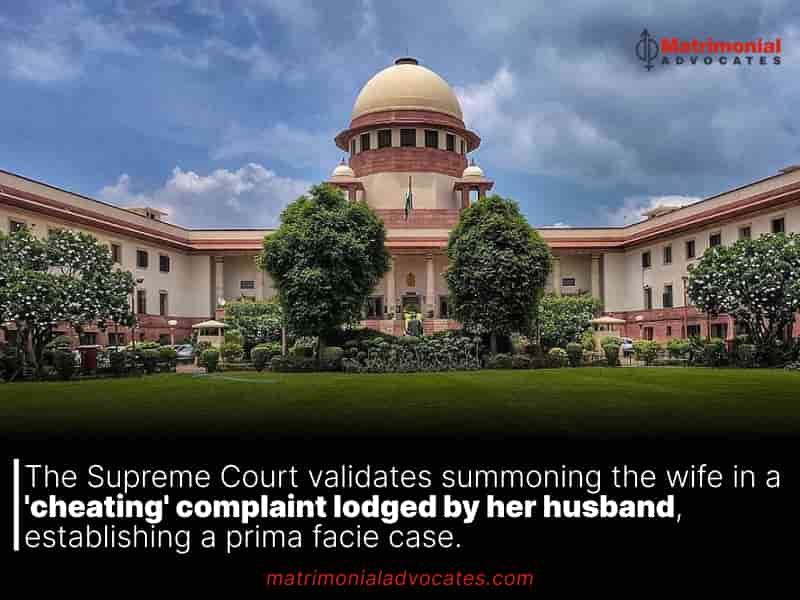
The Supreme Court upheld the summoning of a wife in a ‘cheating’ complaint brought forth by her husband. It granted the husband’s appeal contesting the decision of the Madhya Pradesh High Court. The High Court had upheld the Sessions Court’s verdict, which nullified the summoning order issued by the Trial Court under Section 420 of the Indian Penal Code (IPC) against the wife and under Section 420 read with Section 120-B IPC against her family members.
The two-Judge Bench of Justice C.T. Ravikumar and Justice Rajesh Bindal noted, “The Sessions Judge failed to appreciate the fact that certain events had taken place thereafter, namely, apprising the appellant about the decree of divorce having been passed and showing the forged copy thereof to him on mobile. The Learned Sessions Court has considered the revision against the summoning order as if after trial the findings of conviction or acquittal was to be recorded. It was a preliminary stage of summoning.”
The Bench underscored the necessity of establishing a prima facie case through the allegations in the complaint and the evidence presented by the complainant before summoning an accused individual.
Context: According to the complainant husband, the marriage took place in 2018, but the respondent wife was already married and had not obtained a divorce from her previous husband. Upon discovering this, the appellant husband filed a petition under Section 11 of the Hindu Marriage Act, 1955 (HMA) with the Principal Judge, Family Court, seeking annulment of their marriage. Subsequently, he lodged a complaint against the respondent and her family members. In response, the Magistrate directed legal proceedings against the respondent for offenses under Sections 494 and 420 of the Indian Penal Code (IPC), as well as against her family members under Section 420 read with Section 120-B IPC. The accused individuals (respondents) challenged this order by filing a Revision Petition before the Additional Sessions Judge, resulting in partial allowance by the Sessions Court. Consequently, the Magistrate’s order was annulled concerning the offense under Section 420 IPC against the respondent and the offense under Section 420 read with Section 120-B IPC against the family members. The appellant then appealed this decision by the Sessions Court before the High Court, which upheld the ruling. Thus, the appellant appealed to the Apex Court.
The Supreme Court in the above regard observed, “In a challenge by the appellant to the aforesaid order in the quashing petition, the High Court dismissed the petition without recording any reasons. … Considering the material on record, in our opinion the approach of the Learned Sessions Court and the High Court in setting aside the summoning order against the accused persons i.e. respondent nos.1,2 and 3 under Section 420 read with Section 120-B IPC is not legally sustainable.”
The Court concluded that there existed ample evidence justifying the initiation of legal proceedings against the respondents, requiring them to face trial for the offenses under Sections 420 and 120B IPC for which they were summoned.
“The Trial Court shall decide the case on its own merits on the basis of the evidence led by the parties”, it directed.
Hence, the Court allowed the appeal, reversed the judgments of both the High Court and the Sessions Court, and restored the Magistrate’s order.





